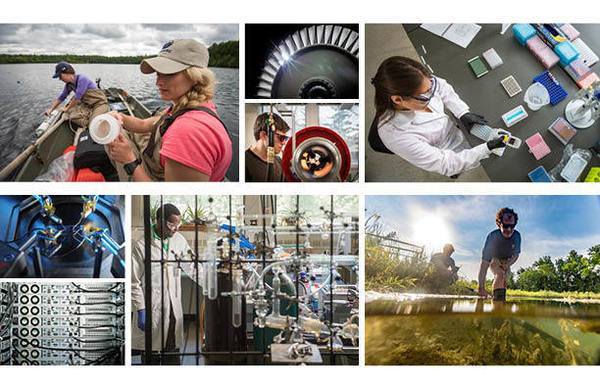
Notre Dame Research invites faculty, staff, post-doctoral scholars, graduate and undergraduate students, as well as external customers to attend the Core Facility Fair on Wednesday, September 20, 2017. From 12:00 to 4:00 p.m. in the McCourtney Hall B01 Auditorium, attendees will be able to learn how state-of-the-art instrumentation and expertise available via the University of Notre Dame core facilities can help take their research to the next level.
Those who attend the Core Facility Fair will have an opportunity to enjoy refreshments, receive giveaways, and visit with the following core facilities:
- Engineering Machine Shop
- Center for Research Computing
- Center for Social Research
- Chemical Synthesis and Drug Discovery Facility
- Engineering and Design Core Facility
- Flow Cytometry Facility
- Freimann Life Science Center
- Genomics and Bioinformatics Facility
- Mass Spectrometry and Proteomics
- Material Characterization Facility
- Notre Dame Linked Experimental Ecosystem Facility
- Notre Dame Nanofabrication Facility
- Magnetic Resonance Research Center
- Physics Machine Shop
- Radiation Laboratory Machine Shop
During the event, Bradley D. Smith, director of the NDIIF and the Emil T. Hofman Professor of Chemistry and Biochemistry, will speak briefly about his expertise as a director of a core facility and how his research program has benefitted from the use of many core facilities across campus. Information about the above groups, as well as other facilities and resources, key research areas, and research in the colleges and schools can be found at http://research.nd.edu/our-research/.
Contact
Kara Primmer / Research Technologies Program Director
Notre Dame Research / University of Notre Dame
khuegel1@nd.edu / 574.631.2178
About Notre Dame Research
The University of Notre Dame is a private research and teaching university inspired by its Catholic mission. Located in South Bend, Indiana, its researchers are advancing human understanding through research, scholarship, education, and creative endeavor in order to be a repository for knowledge and a powerful means for doing good in the world. For more information, please see research.nd.edu or @UNDResearch.
Originally published by at research.nd.edu on September 11, 2017.